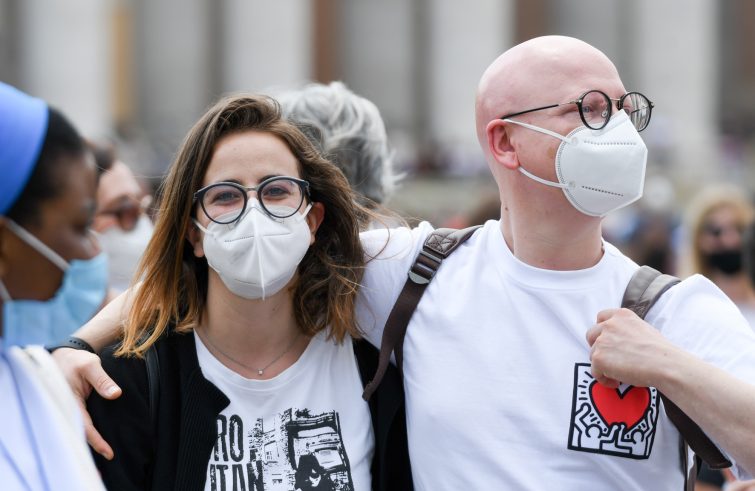
Italy “must continue with coronavirus testing and caution”, Walter Ricciardi, Professor of General and Applied Hygiene at the Catholic University , Director of the National Observatory on Health in the Italian Regions, told SIR during a press conference for the online presentation of the Osservasalute 2019 Report. Responding to a question from SIR, while awaiting the opinion of the Scientific Technical Committee (STC), on the position that Italy should take with respect to the new WHO guidelines – whereby after three days without symptoms patients who tested positive for Sars-CoV-2 can leave isolation, thus two more negative swabs at 24-hour intervals would no longer be necessary – Ricciardi said that the WHO “always operates on a global level.” In particular, its assessments regarded “countries such as Pakistan, India and Brazil facing serious difficulties due to their poor diagnostic capacity”, which in those cases “should be limited to the first diagnosis in order to identify new cases.” The WHO, continued the expert, “also recommended that those who can, must continue.
My position, which I conveyed to the Minister of Health, is that Italy must continue being cautious.”
 The extent of the shortcomings and weaknesses of decentralisation in health care brought to the fore by the Covid-19 epidemic, jeopardising equality of citizens and emergency preparedness, was stressed at the press conference. “The National Health Service faced this tusnami totally unprepared – Ricciardi noted -; after years of cuts, structurally fragile and poor in terms of resources. The heroism of doctors and nurses prevented its collapse, but the lesson for the future is that
The extent of the shortcomings and weaknesses of decentralisation in health care brought to the fore by the Covid-19 epidemic, jeopardising equality of citizens and emergency preparedness, was stressed at the press conference. “The National Health Service faced this tusnami totally unprepared – Ricciardi noted -; after years of cuts, structurally fragile and poor in terms of resources. The heroism of doctors and nurses prevented its collapse, but the lesson for the future is that
the NHS is a precious resource, our most important public asset.”
However, it is structurally weak and marked by excessive disparities between regions.” For this reason the health system must be
refinanced but on a stable basis, through the ESM, which allocates €37 billion to Italy for health care with virtually zero interest.
Unless we reshape and strengthen the national health system with these resources – the expert warned – we will condemn the country to under-capacity, considering that one Italian in two suffers from a chronic disease.”
In the light of increasing incidents of relaxation of security measures, gatherings, failure to respect physical distancing, especially among young people, the Health Minister’s advisor warned: “The virus has not grown weaker, it’s the same it was in January, with the same capacity to spread. If we let our guard down, it will return, not as it did in February – March because our diagnostic and treatment capacity has increased, but it will return.” It will probably “spread among young people who, due to absence of safety precautions, will transmit the infection to grandparents and parents.”
 As concerns the Immuni App, the professor said he was “deeply disappointed”.
As concerns the Immuni App, the professor said he was “deeply disappointed”.
“In designing the APP, politics prioritized privacy protection over the effectiveness of the containment of the epidemic. If, hopefully never, there were thousands of cases, how would we track them down?”,
he said, mentioning the case of the Veneto Region which, “while violating privacy, has allowed for geolocation and thus succeeded in circumscribing the outbreaks.” The App Immuni, continued the Advisor to the Minister of Health, “has no geolocation but Bluetooth, along with a whole set of barriers that protect privacy completely, without allowing anyone to be traced. In addition, to date it has been downloaded by less than 3.5 million citizens, while the minimum percentage for it to be effective must be at least 60% of the entire population.” However, he pointed out, “this is not only an Italian problem, but a European one: Europe favours privacy protection, which must certainly be guaranteed, but
I believe that in times of emergency we must give priority to human life”.
How can we continue defending ourselves against infection in the meantime? “First of all, by maintaining physical distancing, which is regrettably being disrespected in a number of cases; then, since the vast majority of contagions occur through hands, it is necessary to continue to wash them frequently and carefully. Physical distance and hand washing alone can avoid almost 100% of infections. Masks must be worn indoors and wherever distances cannot be observed”. As far as the summer holidays are concerned, it is preferable to avoid air travel for a few more weeks and be vigilant about the hygiene of hotel facilities: “We must not be frightened but worried until we have a vaccine that will make us safe”. Moreover, the frequency of epidemics in recent decades shows that
“pandemics have become a new feature of our contemporary world that we must learn to cope with.”












